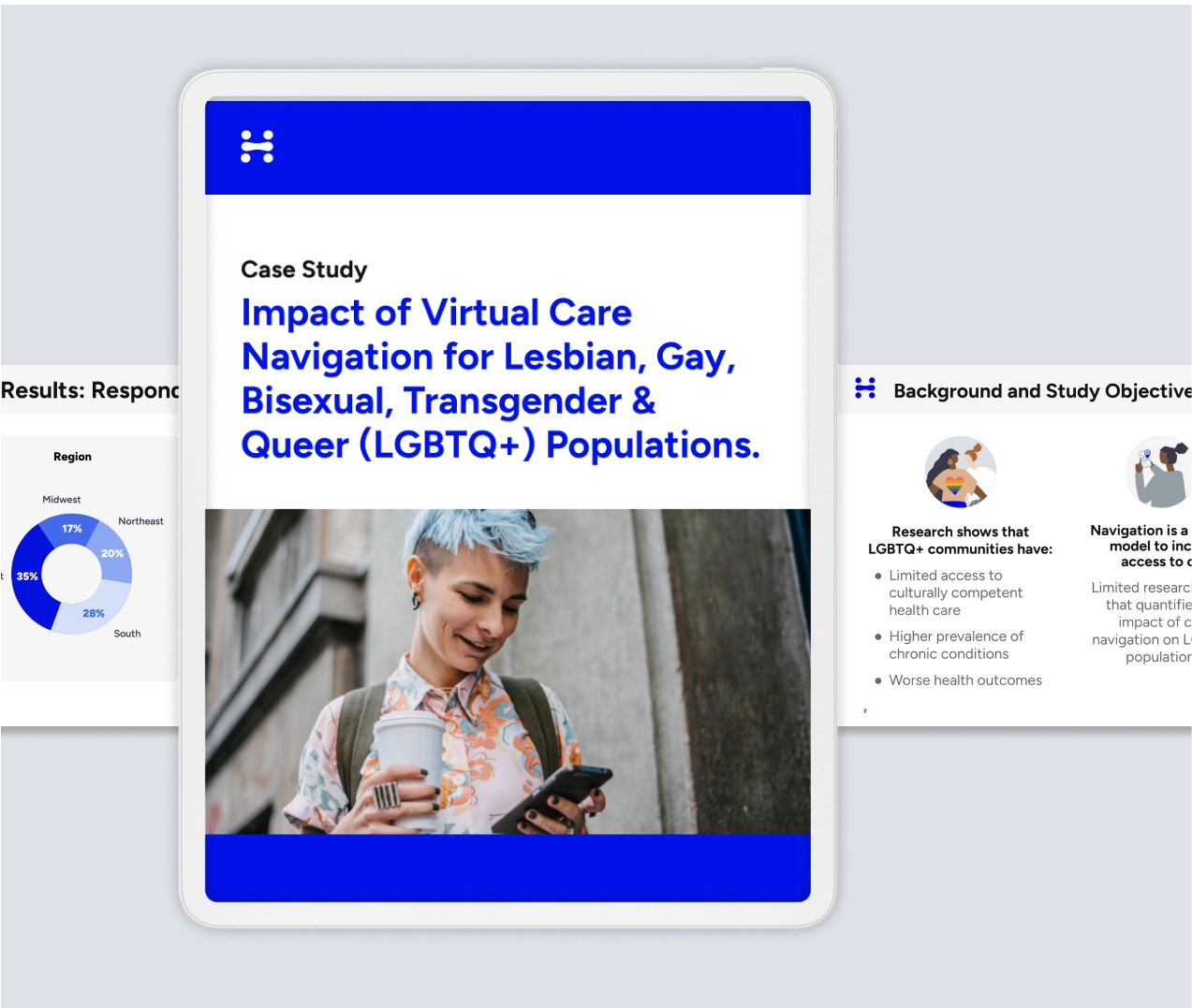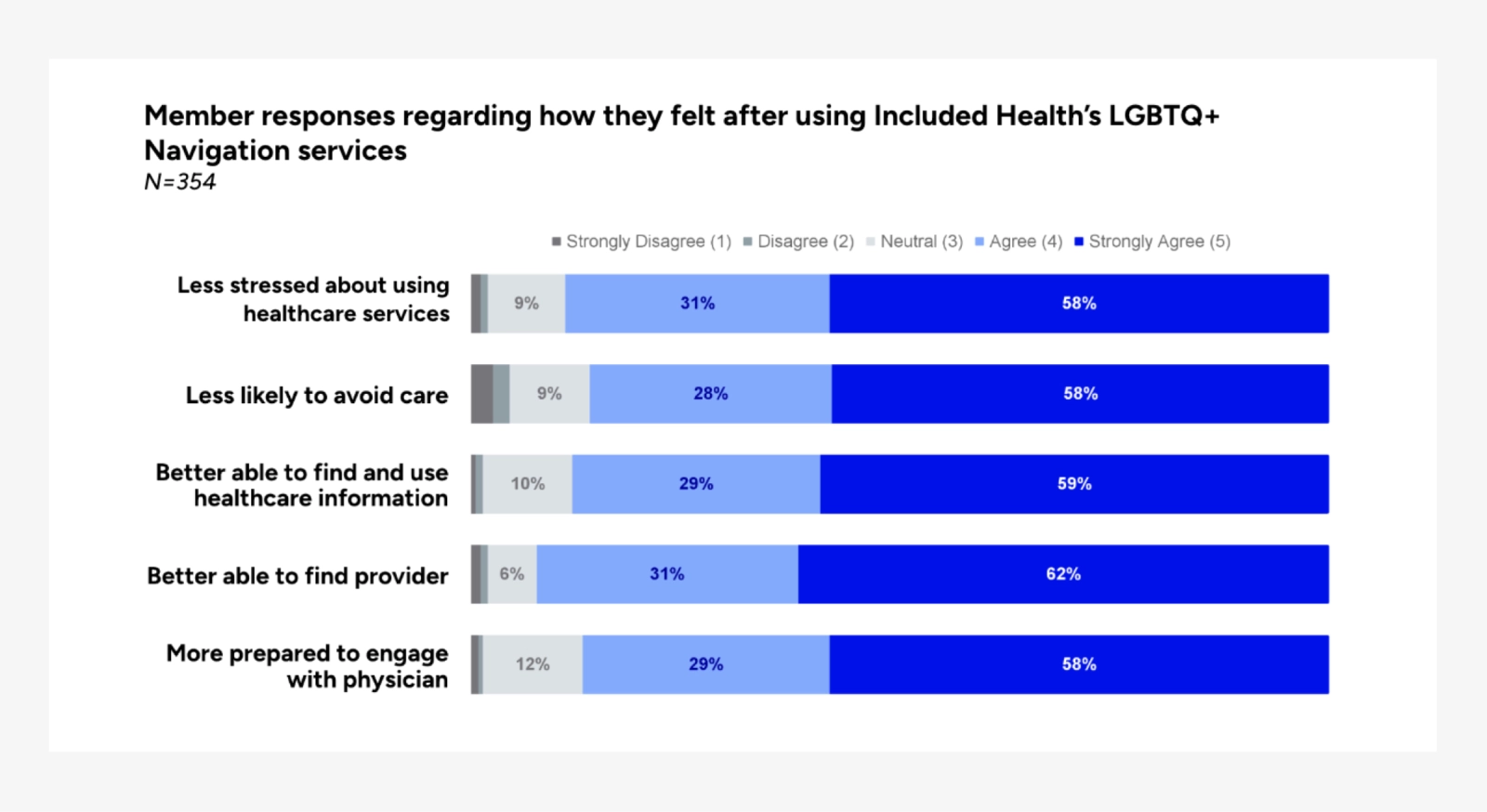Impact of Virtual Care Navigation for Lesbian, Gay, Bisexual, Transgender & Queer (LGBTQ+) Populations: A Case Study of Included Health

Study motivation
Research shows that LGBTQ+ communities have limited access to culturally competent healthcare, higher prevalence of chronic conditions, and worse health outcomes. Navigation is a valuable model to increase access to care. However, limited research exists that quantifies the impact of care navigation on LGBTQ+ populations. We collaborated with researchers from the Eidos LGBTQ+ Health Initiative at the University of Pennsylvania to evaluate the impact of Included Health’s LGBTQ+ specialized virtual healthcare navigation service on members’ abilities to understand and access the care they need among a national commercially insured cohort of members.
Methodology
- Analysis of optional surveys submitted by members who used Included Health’s LGBTQ+ Navigation service upon completion of service requests
- Descriptive statistics were used to report the outcomes and chi-squared tests and t-tests were used to explore differences by case and member characteristics

What we found
- Based on 354 LGBTQ+ Navigation cases from January 26 to July 31, 2023, 86% of respondents agreed or strongly agreed that LGBTQ+ Navigation had a positive impact on some aspect of their ability to understand and use the care they needed.
- Over 89% felt less stressed about accessing healthcare services; 86.2% were more inclined to seek care when needed; 88% agreed or strongly agreed that they improved their ability to find, comprehend, and utilize the information necessary for making informed healthcare decisions; over 92% agreed or strongly agreed they had increased confidence in finding healthcare providers; and 87% felt more prepared to engage with these providers.

Implications
Tailored care navigation services delivered virtually have the capacity to broaden the reach and scalability of healthcare access for LGBTQ+ populations who face multiple challenges, including anti-LGBTQ+ policy, when navigating their healthcare needs.
Choi S, Marshall J, Sexton Topper P, Pregnall A, Bauermeister J.Impact of a Virtual Care Navigation Service on Member-Reported Outcomes Among Lesbian, Gay, Bisexual, Transgender, and Queer Populations: Case Study. JMIR Form Res 2025;9:e64137. DOI: 10.2196/64137
Author affiliations:
Jaclyn Marshall, Included Health
Seul Ki Choi, Patrina Sexton Topper, Andrew Pregnall, Xandro Xu, & Jose Bauermeister, The Eidos LGBTQ+ Health Initiative at the University of Pennsylvania